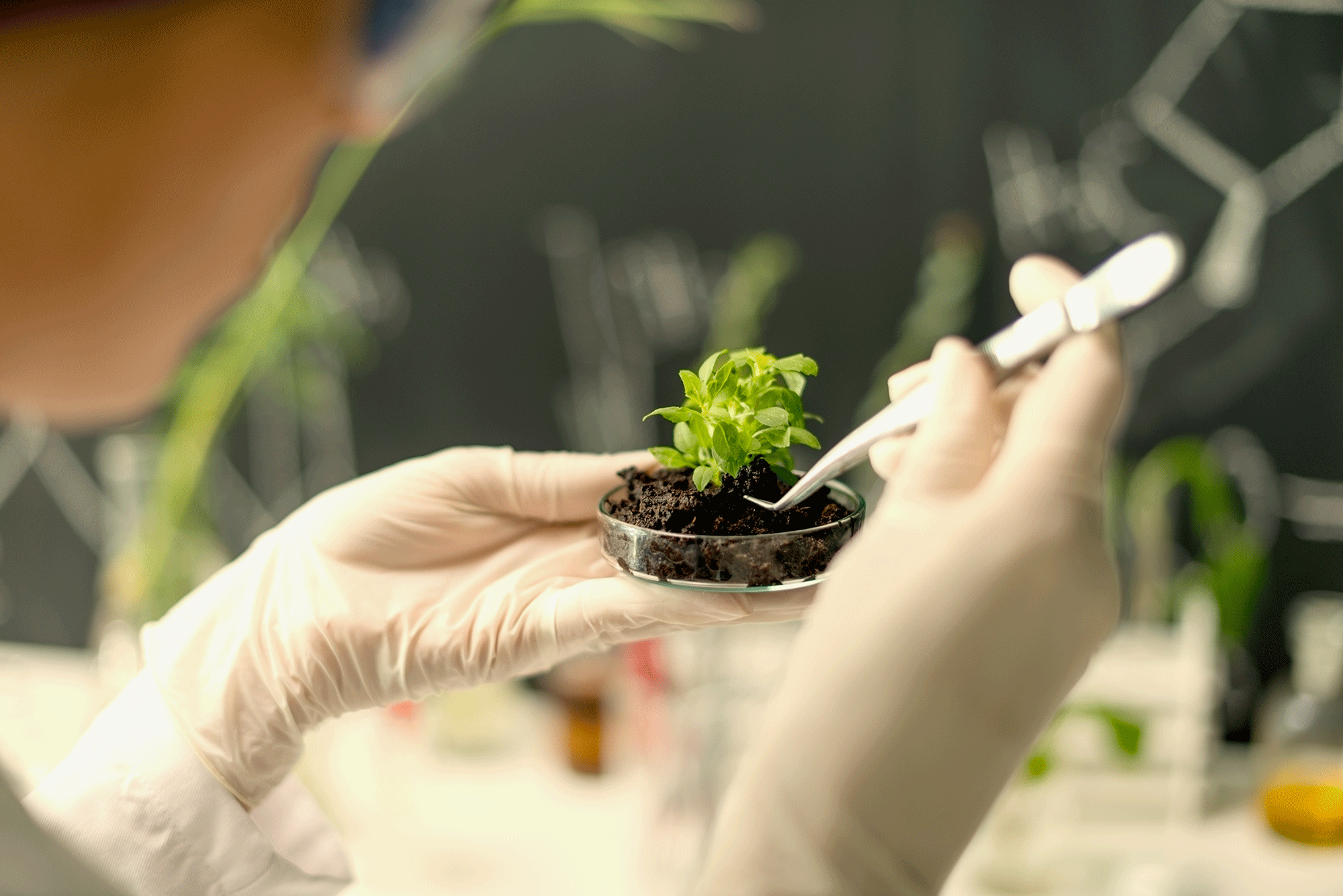On this page
Biology (sometimes called the life sciences) is one of the most popular majors on college campuses today. While some students choose a biology degree as preparation for medical school, many students don’t realize that it can also open doors to many other careers.
Food scientists, science writers, nature conservation officers, medical lab technicians, forensic scientists, and even pharmaceutical sales representatives are all professionals who may have started off their careers with a degree in biology.
The best thing about a biology degree is that it pairs well with so many other passions.
A biology major can be a steppingstone to a specialized career studying the impact of climate change on food crops, developing a cure for Alzheimer’s, learning the root causes of Autism, or working to clean up the world’s polluted oceans.
If you have an interest in the life sciences but are not sure where a degree in biology will lead you, read on to learn more about potential careers in biology. It turns out you can do a lot more with a biology degree than go to medical school.
What are the best careers in biology?
Biology is the study of living organisms, their processes, and their functions. It’s a broad field that encompasses everything from large plants and animals to tiny microorganisms.
Career options in biology are therefore as varied as the living organisms biologists study.
And the field continues to grow, expanding into areas unheard of a few years ago. Astrobiologists, for instance, study the effects of outer space on living organisms and hunt for extraterrestrial life. Bioclimatologists study how climate affects plants, animals, and humans. Cryobiologists study the effects of low temperatures on living organisms. Bioinformaticians apply their computer skills to solving problems in medicine and the life sciences.
Other popular careers in biology include immunobiology, in which biologists study the immune system, and genomics, in which biologists study genomes.
Where can you work with a biology degree?
Biologists can work almost anywhere, including in the worlds of art, law, business, public health, and education.
What career you choose will depend on your interests and whether you opt for a bachelor’s degree, a master’s, or maybe even an MD or PhD.
If you stop at a bachelor’s degree, you might work as a technician at a biotech firm or hospital. You could become a high school biology teacher or use your degree to become a health educator. You could even build a career as a science content writer or move into sales at a medical device company.
With additional education, you can use your biology degree to become a nurse, physician, veterinarian, engineer, or senior scientist. An advanced degree in biology can allow you to teach biology at a university or become a senior level manager or researcher at a pharmaceutical, environmental, or biotech firm. You might even decide to start your own company.
The Bureau of Labor Statistics estimates there will be almost 114,000 new jobs in the life, physical, and social sciences between 2020 and 2030, meaning that biology and related fields represent a high-growth sector.
What type of biology is best for your career goals?
Careers in biology can be divided into branches and fields. Each branch offers a different set of career choices. There are dozens of possibilities, but a few broad areas include:
- Biomedical Engineering. This area revolves around applying the problem-solving techniques of engineering to biology and medicine. Someone who has a biology degree might get a graduate degree in engineering to tackle real-world systems that make people healthier. Biomedical engineers design new technologies that include prosthetic devices, imaging systems, medical instruments, diagnostic tools, and biopharmaceuticals. Many biomedical engineers work at biotechnology firms. Some may work for the government to establish safety standards for medical devices. This area is huge and growing and includes a wide range of specialties from biomaterials to stem cell engineering.
- Chemical and Physical Biology. People working in this area use tools from mathematics, chemistry, and physics to solve problems in the life sciences. Chemists and physical biologists work in research and technical positions in industries like oil, chemicals, food processing, agriculture, biotechnology, and mining. They might work in manufacturing or in diagnostics at a private company, or in quality control, sales, and plant development.
- Ecology and Environmental Biology. Ecologists and environmental biologists study the relationships between living things and their habitats. Within this field, there are many specializations. For instance, aerobiologists study organisms and organic particles in the air. Geobiologists study the interactions between the earth and the biosphere. Many people in this area study specific regional environments to protect wildlife and ecosystems. They might work as a naturalist at a state or national park, or as a consultant or researcher with a government agency, private firm, or non-profit organization.
- Human Evolutionary Biology. Human evolutionary biologists seek to understand how evolutionary forces have shaped our physiology and patterns of behavior. Someone working in this field might work as a researcher in medical science or a professor in medicine, economics, psychology, or the social sciences.
- Molecular and Cellular Biology. Cell biologists study cell structures and their interactions with biological organisms. They usually work in laboratories where they analyze samples, perform experiments, and keep detailed records of their findings. A cell biologist may work for government agencies, in private or public laboratories, as well as teach at colleges or universities.
- Neuroscience. Neuroscientists study the biology underlying behavior and how our brains process information. They examine the nervous system at every level, from behavior and cognition to cells and molecules. Someone in this area might work in research at a biotech company, become a neuroeconomist, a medical doctor, or a professor at a university.
What careers require an advanced degree in biology?
While it’s possible to find a satisfying career with only a bachelor’s degree in biology, the reality is that as technology and science progresses, there is always more to know.
That makes it increasingly likely that you’ll need a graduate degree in a specific area in the biological sciences. We’ve discussed many of these areas, including cell and molecular biology, biomedical engineering, neurobiology, and chemistry.
An advanced degree is especially necessary for anyone interested in moving into research in academia, private industry or in a government lab. But advanced degrees are also necessary outside of academia and research. Foresters and forensic scientists, environmental scientists, and microbiologists generally have advanced degrees.
Rather than earning a more advanced degree in a specialized area of biology, some students choose to enter a professional school after receiving their bachelor’s degree. They might attend nursing, medical, veterinary, dental or law school. Students who choose this route can find themselves richly rewarded by a fascinating career that offers even more opportunities for specialization.
Whatever career you choose, the nice thing about getting a degree in biology is that you’ll always have options!

